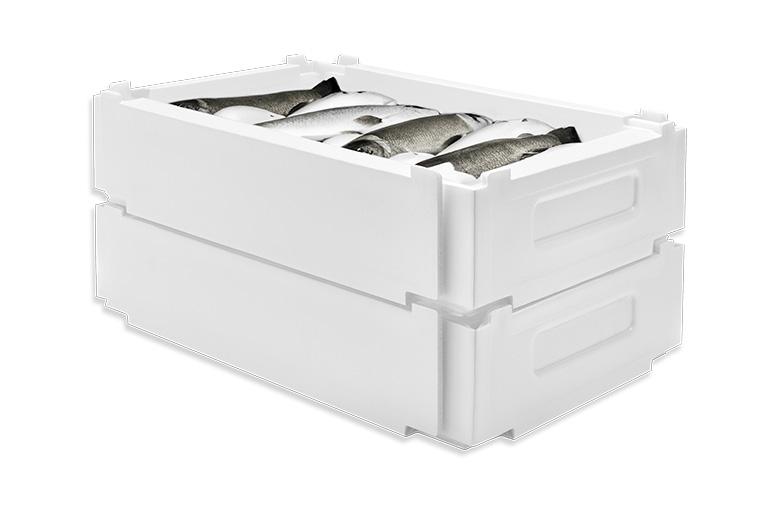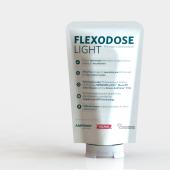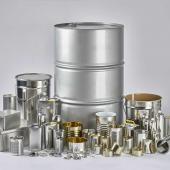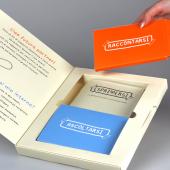HAPPY Srl | Best Packaging 2024
Zero
What is it. Zero is a composable r-XPS box made of up to 50% post-consumption recycled material behind a functional barrier. Initially, it is presented as a flat sheet, which is then folded to compose the box. Strengths: it reduces transport and storage costs and the dispersion of microplastics in the sea; it is 100% recyclable, modular, stackable and has an excellent thermal resistance to cold.
Accessibility focus. The modular box can be assembled and disassembled in simple manual steps. Disassembly facilitates and reduces the costs of waste storage and collection for subsequent recycling.
Manufacturing material. XPS (extruded polystyrene foam).
Technology. Fabrication takes place by means of an extrusion process with the application of coating, or film, inside or outside virgin PS and subsequent thermoforming-cord-forming and die-cutting. The two outer layers “A”, composed of virgin material act as a functional barrier, guaranteeing first food safety, but also the assembly of the box without risk of breakage and drastically reducing the absorption of liquids and odours emitted by foodstuffs, making it possible to obtain a high-quality post-consumer recyclate suitable for reuse within the same box (closed loop box to box).
Product and potential markets. Box suitable for transporting fresh fish: from the sea to markets, fish shops or large-scale retail outlets. This solution can also be used for the containment and transport of other foodstuffs.
Design. Modular box (open format that can be assembled and disassembled).
Sustainability. The mono-material box is composed of up to 50% post-consumption recycled behind a functional barrier, reducing CO2 emissions by at least 40% compared to virgin material, as well as the absorption of liquids and odours emitted by the food, enabling the production of quality secondary raw material for subsequent reuse. The thermoformed material does not promote fragmentation, thus minimising the dispersion of microplastics into the sea. The open format occupies a tenth of the space of a traditional EPS tray and allows to reduce costs and space for transport and storage of the trays, and subsequent recovery for recycling.






















